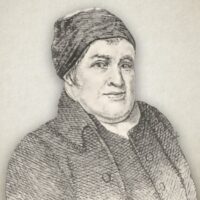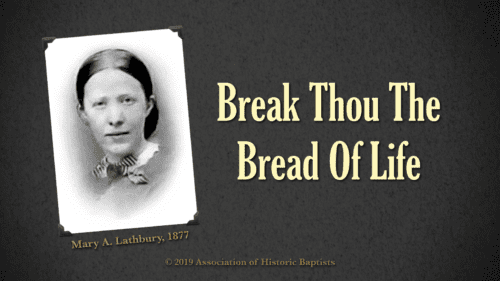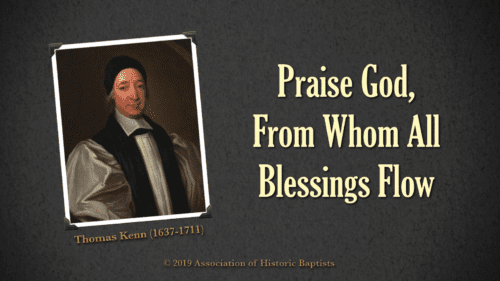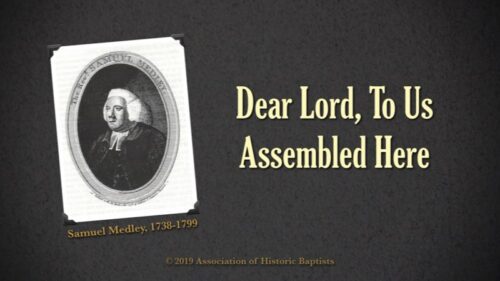Thy Presence, Gracious God, Afford
Isaiah 55:10,11: “For as the rain cometh down, and the snow from heaven, and returneth not thither, but watereth the earth, and maketh it bring forth and bud, that it may give seed to the sower, and bread to the eater: so shall my word be that goeth forth out of my mouth: it shall not return unto me void, but it shall accomplish that which I please, and it shall prosper in the thing whereto I sent it.”
2 Thessalonians 3:1: “Finally, brethren, pray for us, that the word of the Lord may have free course, and be glorified, even as it is with you:”
John Fawcett (1739-1817) was an English Baptist preacher, theologian and hymn writer. Edwin Long wrote of him:
“Although Whitefield did not perpetuate his influence through the composition of any hymns, yet he was the means of the conversion of some hymn-writers, who are, after the march of a century, still shaping the eternal destiny of precious souls. Who can measure the circle of influence that has widened out through the singing of that oft-repeated hymn:—"Come, thou Fount of every blessing!” Its author, Robert Robinson, was among the thousands of Whitefield's converts. So was also the Rev. John Fawcett, D.D. Both, when lads of about sixteen years of age, were drawn into the stream of salvation by the tide of Whitefield's popularity. Fawcett was born at Lidget Green, England, January 6, 1739. His father having died when he was twelve years of age, he was apprenticed for six years at Bradford. While at this place he was tempted to follow the crowds that everywhere surrounded the eloquent Whitefield. The sermon, that was made effective to his conversion, was from the words, “And as Moses lifted up the serpent in the wilderness, even so must the Son of Man be lifted up.” “As long as life remains,” he says, “I shall remember both the text and the sermon.” In 1758, he united with the newly-formed Baptist church at Bradford. After using his talents in exhortation for some time, he was urged by the church to prepare for the regular work of the ministry. To this advice he yielded. In May, 1765, he was ordained as pastor of the Baptist church at Wainsgate. Two years later, he issued his "Poetic Essays," and in 1782, he gathered together his hymns, one hundred and sixty-six in number, in a volume, entitled, "Hymns adapted to the circumstances of Public Worship and Private Devotion."
John Fawcett Hymn Studies
John Fawcett's Hymns






